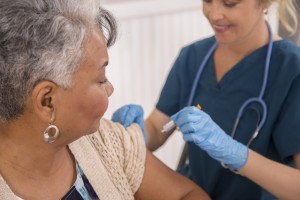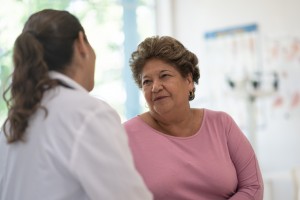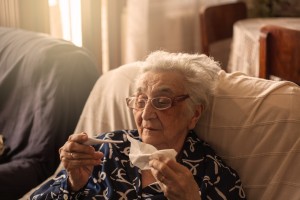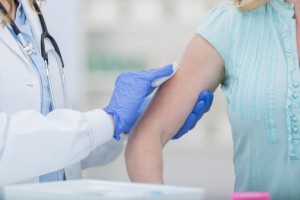Recommended Vaccines for Seniors
 Adults are less able fight off infections as they age. Chronic diseases can weaken the immune system. It is important for seniors to receive certain vaccines to help them live healthier lives. Here are several vaccinations recommended for seniors by the Centers for Disease Control.
Adults are less able fight off infections as they age. Chronic diseases can weaken the immune system. It is important for seniors to receive certain vaccines to help them live healthier lives. Here are several vaccinations recommended for seniors by the Centers for Disease Control.
Flu vaccine (influenza)- Flu is a contagious respiratory illness that affects many people each winter. Seniors are at higher risk for developing serious complications. It’s especially important to be protected against flu if you suffer from a chronic medical condition such as COPD, diabetes, or heart disease. An annual vaccine is necessary as the virus changes each year. It takes about two weeks for the body to build up full immunity, so get vaccinated early in the season. A higher dose version is available for seniors. Medicare Part B covers the cost of the vaccine.
Pneumonia vaccine – Pneumonia is a serious lung infection that can cause significant complications for seniors, people with chronic diseases, and smokers. The vaccine is recommended for all adults age 65 and older. There are two types of pneumonia vaccines that protect against different types of pneumonia. The PCV13 vaccine is given first. A year or more later the PPSV23 vaccine can be given to protect against additional types of pneumonia. With these two shots, a senior will most likely be protected for the rest of their life. The vaccines are covered by Medicare Part B.
Shingles vaccine- Shingles is a painful blistering rash caused by the dormant chicken pox virus that suddenly becomes active. One in three adults gets shingles during their life. Since older adults are more likely to have serious complications, the vaccine is recommended at age 60. The older single dose version is about 51% effective for approximately five years. The newer 2-dose vaccine is about 90% effective but has a few more side effects. The newer vaccine is not as readily available at this time. A person can still receive the newer vaccine even if they have already had the single dose version. The vaccine is partially covered by Medicare Part D drug plans.
Tdap vaccine- Tdap protects against tetanus, diphtheria, and pertussis (whooping cough). Tetanus bacteria enters the body through cuts and wounds. Diphtheria and pertussis are contagious diseases spread through coughing and sneezing. Adults who have never had a Tdap vaccination should receive one, especially if they are grandparents who have contact with infants too young to be vaccinated. The Tdap vaccine is partially covered under Medicare Part D.
Speak with your health care professional at RMD Primary Care to find which of these vaccines is right for you.






